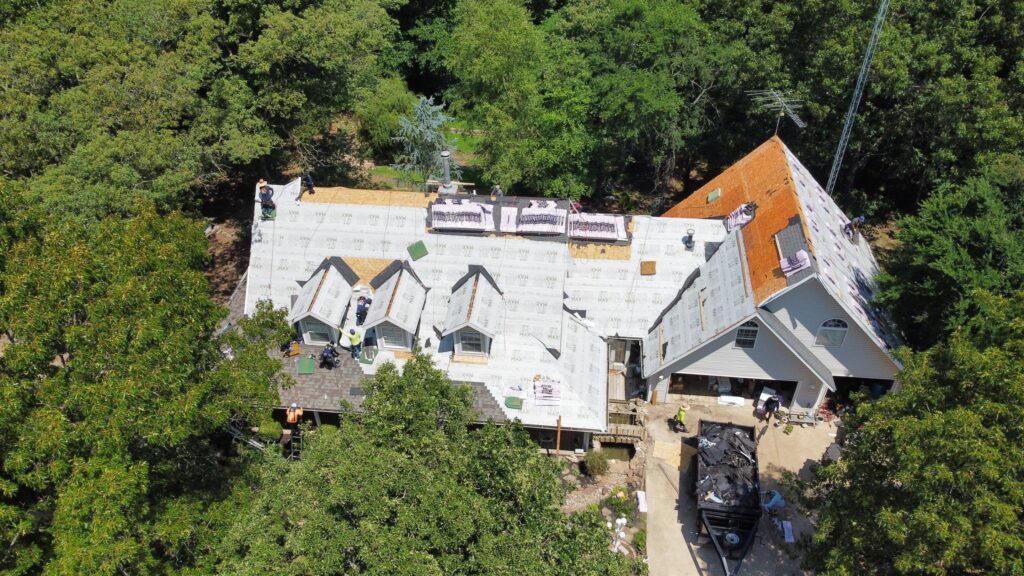Introduction
Roof upgrades can do more than improve your home’s appearance—they can also save you money. Many homeowners overlook the financial incentives available for energy-efficient improvements, including roofing upgrades. In this article, we’ll explore how energy rebates, tax credits, and energy-efficient roofing materials can reduce costs while increasing your home’s value and comfort.
Why Energy-Efficient Roofing Matters
Reduced Energy Bills
Energy-efficient roofing minimizes heat transfer, keeping your home cooler in the summer and warmer in the winter, which lowers your heating and cooling expenses.
Environmental Impact
Choosing sustainable materials and designs helps reduce your carbon footprint by decreasing energy consumption and greenhouse gas emissions.
Long-Term Savings
Although energy-efficient upgrades may require an upfront investment, they lead to significant long-term savings on utility bills and maintenance costs.
Available Energy Rebates for Roofing Upgrades
Federal Tax Credits
The Federal Residential Energy Efficiency Tax Credit offers homeowners rebates for installing energy-efficient roofing materials, such as reflective shingles or cool roof coatings.
State and Local Incentives
In Denver, Colorado, homeowners may qualify for additional energy rebates through state or utility programs. These incentives can offset the costs of installing energy-efficient roofs or insulation.
Renewable Energy Incentives
If your roofing project includes solar panel installation, you may qualify for renewable energy tax credits and rebates, further reducing your investment costs.
Energy-Efficient Roofing Materials
Cool Roofs
Cool roofs use reflective materials that bounce sunlight away from your home, lowering roof surface temperatures and reducing the need for air conditioning.
Metal Roofing
Metal roofs with reflective coatings are not only durable but also excellent at deflecting heat, making them a popular choice for energy-conscious homeowners.
Solar Panels
Incorporating solar panels into your roof upgrade generates clean energy, reducing utility bills and qualifying for renewable energy incentives.
Insulated Shingles
Advanced shingles with integrated insulation help regulate indoor temperatures, boosting energy efficiency.
Steps to Claim Energy Rebates for Roofing
Research Available Programs
Check federal, state, and local programs to identify rebates and incentives you may qualify for.
Choose Certified Materials
Ensure your roofing materials meet ENERGY STAR® or equivalent certification requirements to qualify for rebates.
Document Your Expenses
Keep receipts, invoices, and documentation for all materials and installation work to submit with your rebate applications.
Work with Qualified Contractors
Hire professional roofers familiar with energy rebate programs to maximize your savings opportunities.
Benefits of Upgrading Your Roof for Energy Savings
Increased Home Value
Energy-efficient upgrades, such as solar integration or reflective shingles, add significant value to your property.
Faster ROI
Energy rebates and reduced utility bills speed up your return on investment for roof upgrades.
Improved Comfort
Better insulation and temperature regulation create a more comfortable living environment year-round.
Tailored Roofing Solutions in Denver, Colorado
Denver’s diverse climate requires roofing materials that can handle extreme heat in the summer and heavy snow in the winter. Tried and True Roofing specializes in energy-efficient roofing solutions tailored to Denver homeowners. Their team ensures your roof not only withstands the elements but also qualifies for available energy rebates.
Conclusion
Roof upgrades that incorporate energy-efficient materials and practices offer homeowners a unique opportunity to save money while increasing home comfort and sustainability. By leveraging available energy rebates and working with professional roofers, you can make smart investments that pay off in the long run. Don’t miss out on the financial and environmental benefits of energy-efficient roofing solutions.
